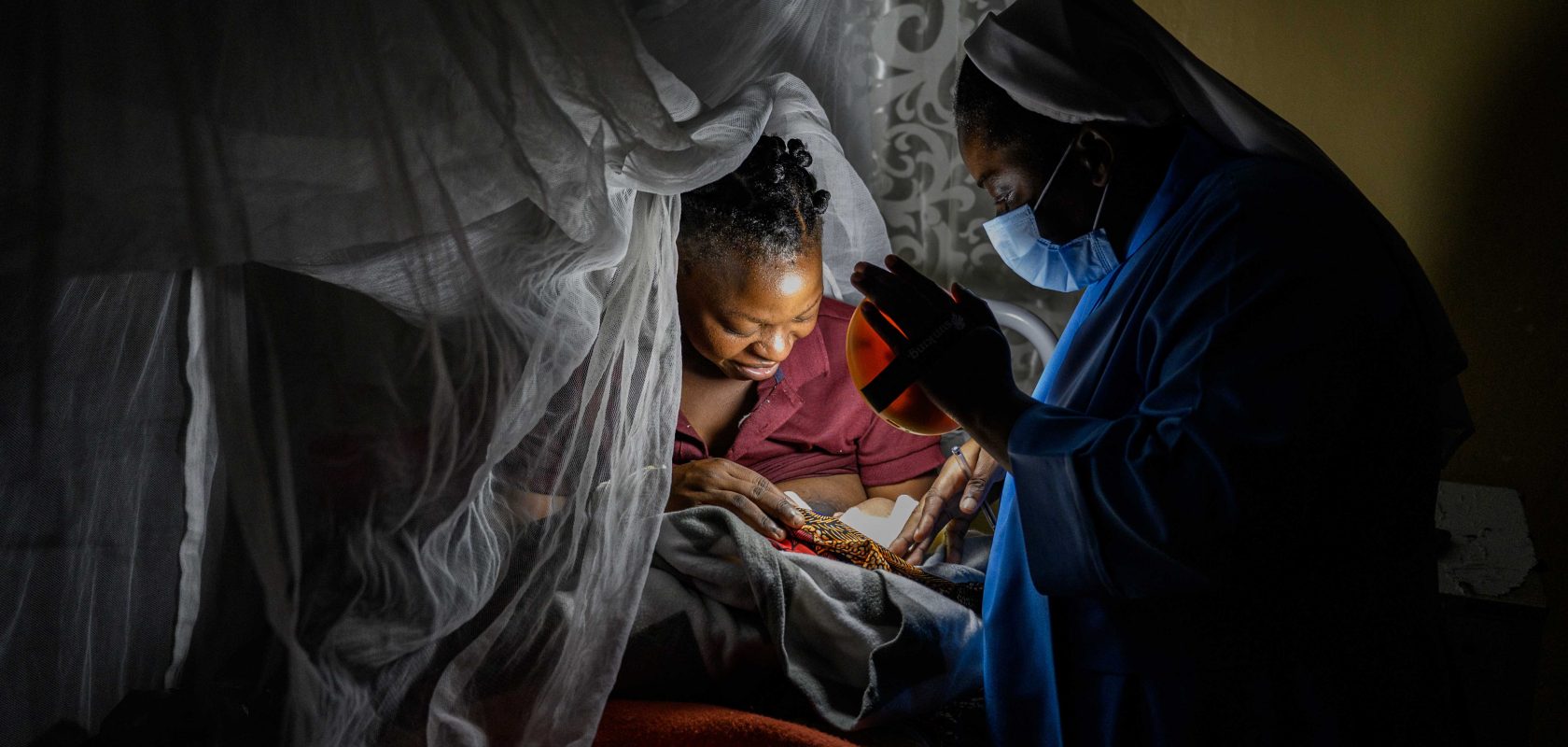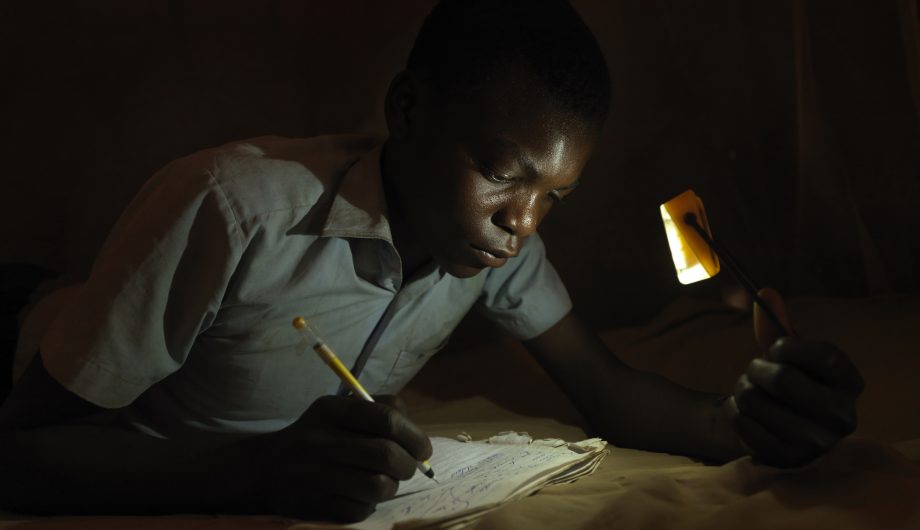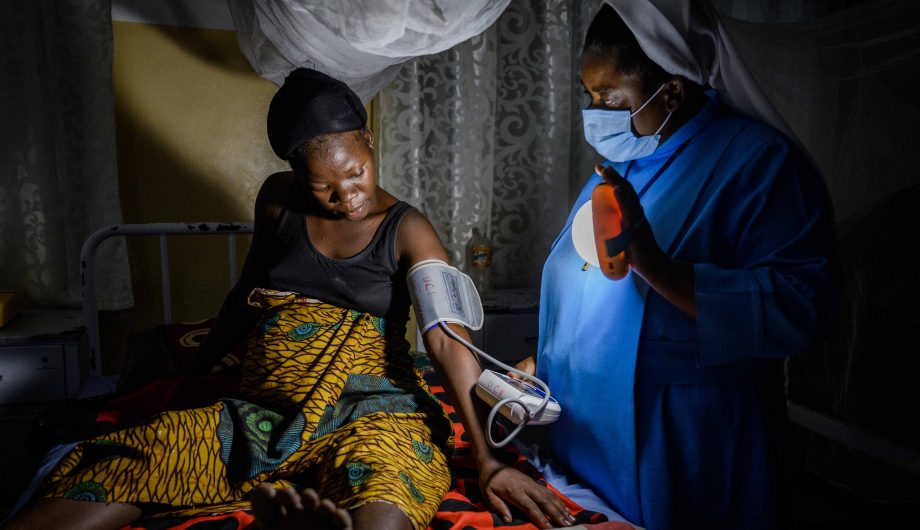When the sun goes down at 6pm in sub-Saharan Africa, the day ends for 590 million people. There is no switch on the wall to turn on the light. There is no access to electricity. Instead, families have no choice but to ignite kerosene lamps and paraffin candles, which emit toxic fumes into their lungs and into the earth’s atmosphere.
These alternatives are endangering health, impairing education, wasting income and damaging the planet.
But, it doesn’t have to be this way. With solar lights, we can change the story at a flick of a switch.

42-year-old Nelia Mbewe point at a solar bulb at her home in Kachingwe Village, Kasungu central Malawi on Thursday 29 April 2021







